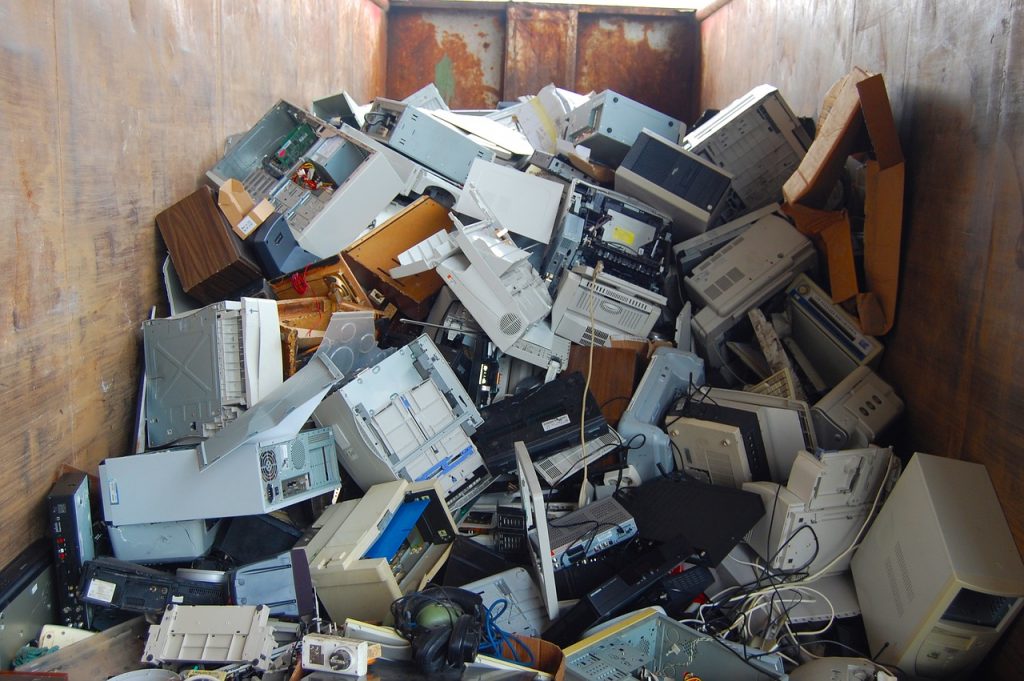News
CCC pitches moves vs. e-waste

He is also recommending formulation of a national strategy and action plan for institutionalizing e-waste recycling and collection. (Pixabay photo)
MANILA – The Climate Change Commission (CCC) is recommending measures to address the growing problem of discarded electrical and electronic equipment in the Philippines, one of Southeast Asia’s top generators of this e-waste.
Government must develop a national policy and regulatory framework on e-waste management, said CCC Vice Chairperson and Executive Director Emmanuel de Guzman.
He is also recommending formulation of a national strategy and action plan for institutionalizing e-waste recycling and collection.
There’s need to likewise undertake relevant research and technology development aside from stopping illegal entry of hazardous e-waste into the country, he continued.
“Electronic gadgets become waste when their usefulness ends, causing an environmental problem locally and globally,” he said in his 2020 International E-Waste Day message on Wednesday (Oct.
14).
Experts warned that while e-waste contains materials that are still usable, such trash also has elements harmful to health, the environment and climate.
De Guzman raised urgency for action, noting global e-waste already ballooned to nearly 54 million metric tonnes (MT) last year.
That’s 21 percent more than the global e-waste level in 2014, he noted Launched earlier this year, UN’s ‘The Global E-Waste Monitor 2020′ report estimates e-waste generated worldwide will already exceed 74 million MT by 2030.
Higher consumption of electrical and electronic equipment, as well as short life cycle of and limited repair options for these, will likely fuel such increase, the report warned.
According to the report, the Philippines is among Southeast Asia’s top e-waste generators.
It said the Philippines generated 3.9 kg of e-waste per capita last year but still lacks either national legislation, policy or regulation specifically on e-waste although the country already set regulations on hazardous waste.
Such regulations cover e-waste which is considered as hazardous, the report noted.
De Guzman said CCC acknowledges different sectors’ efforts to help address the growing e-waste in the country.
“CCC lauds efforts of various stakeholders to raise awareness on the critical role of consumer electronic purchasing and recycling decisions in dealing with the growing problem of e-waste,” he said.
He said public-private sector collaboration on the matter is vital in addressing the e-waste challenge.
“Cooperation among government and private business and manufacturers and consumers in driving innovations, and transition of sectors into a circular economy, are key to climate resilience and sustainable future of the Filipino nation,” he said.
Circular economy is an economic system focused on sustainably using resources as long as possible to help minimize waste.
Such system is an alternative to the traditional linear economy of making, using and disposing products.
E-waste is also called waste electrical and electronic equipment (WEEE), a term mainly used in Europe.
In April 2002, six WEEE producers with operations in Austria, Belgium, the Netherlands, Norway, Sweden and Switzerland founded the organization called WEEE Forum.
The organization aims to be the center of excellence in environmentally sound and efficient solutions for electronic waste collection, logistics and processing.
Around 40 WEEE producer responsibility organizations from various countries worldwide already comprise the organization.
WEEE Forum in 2018 came up with International E-Waste Day to raise public awareness about and action on e-waste.





















